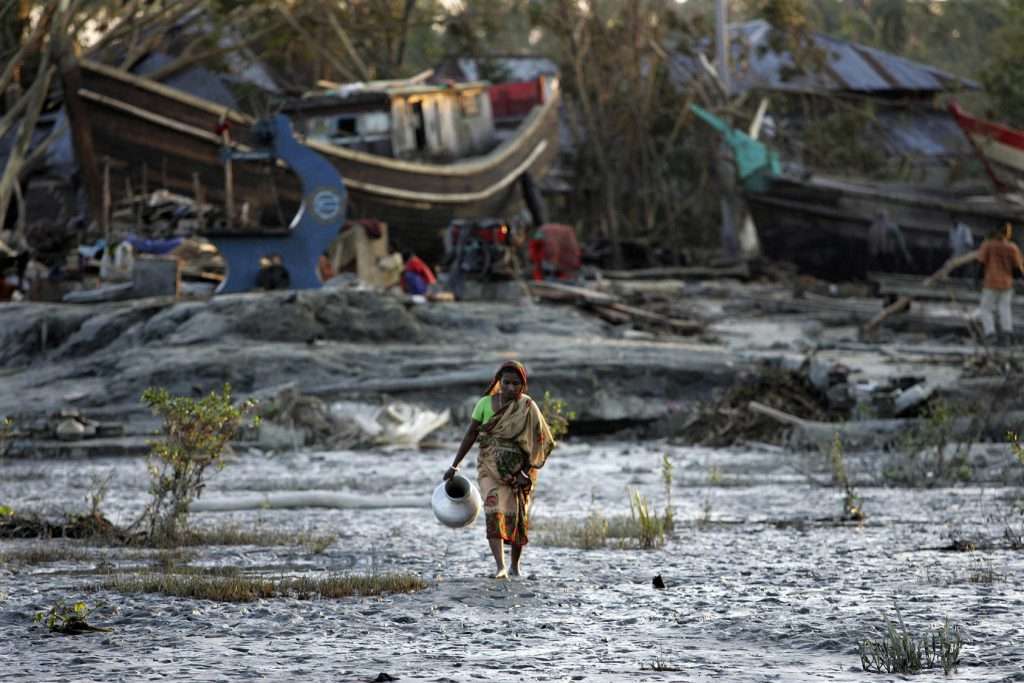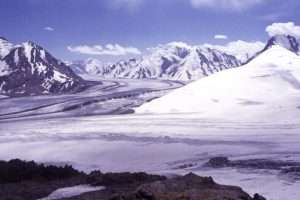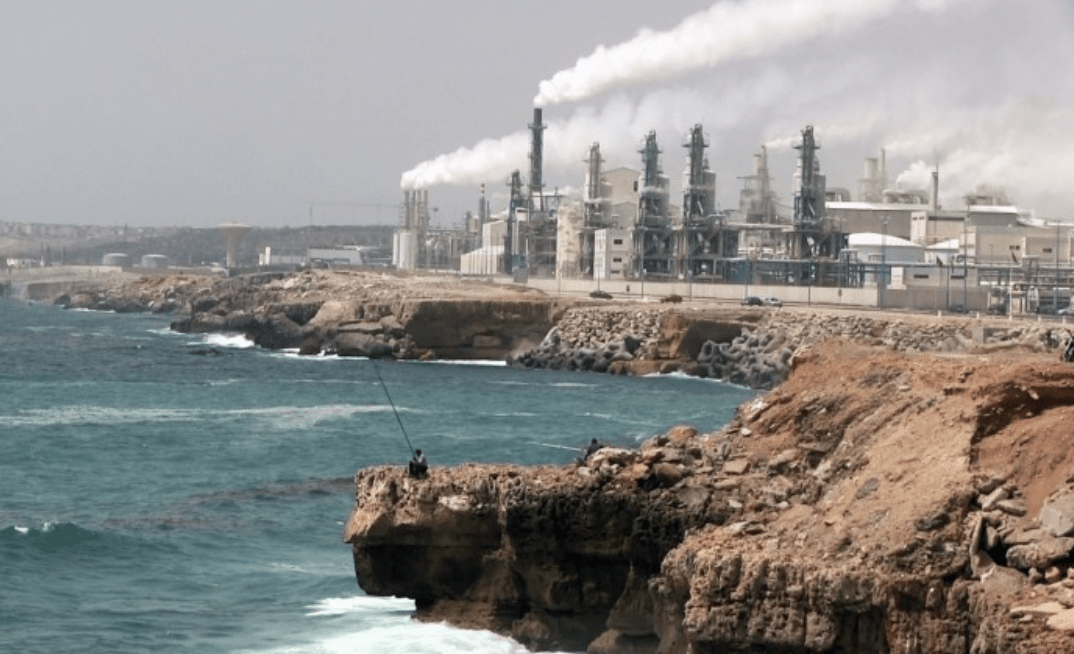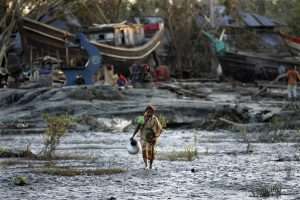The invisible climate battle of Bangladesh’s Dalit women

A woman walks through the mud and wreckage after a cyclone hit in the village, Bangladesh. November 20, 2007. (Ruth Fremson/The New York Times)
In Bangladesh, caste and gender based discrimination is neglecting female sanitation workers into a cycle of exclusion and vulnerability even with climate change intensifying, according to a new report by Amnesty International and other agencies reported on October 16.
The report by Amnesty International, ‘Left Behind in the Storm: Dalit Women Sanitation Workers and the Fight for Water and Dignity’, found female workers from Dalit (often referred to as “low caste”) communities in the coastal districts of Khulna and Satkhira to be extremely neglected, especially where rising sea levels, cyclones and flooding are recurring features of the climate crisis.
These women perform essential roles in maintaining public health and hygiene infrastructure, yet they are largely ignored in government planning on water, sanitation and disaster relief and face improper access to safe drinking water and decent sanitation facilities.
In one case a sanitation worker told Amnesty “There is no water infrastructure, tankers, or machines ever provided to our colony, even though we are all government workers… I think we low caste people are forgotten.”
According to The Business Standard, many of the families of sanitation workers earn as little as 3,000 to 8,000 taka per month (US $25-65) and cannot afford safe drinking water or resilient sanitation. They are forced to rely on rainwater harvesting, public wells or ponds, with attendant health risks.
One sanitation worker, described in the Amnesty report, said: “I could not get any clean water to drink… The water was never enough.”
Amnesty warns that Bangladesh cannot build a climate resilient future if it excludes its most marginalised communities from decision-making. “A climate-resilient future for Bangladesh can only be shaped through inviting excluded voices into policy-making discussions… Bangladesh cannot build effective resilience to increasingly intense droughts, cyclones, floods and extreme heat if it leaves the most neglected groups behind,” said Isabelle Lassée, Deputy Director Research for South Asia at Amnesty International.
The findings found that even as the climate crisis escalates, longstanding social inequalities are not only persisting but deepening. According to Amnesty International the report calls for action to address this and urges the collection and monitoring of caste disaggregated data to understand how discrimination affects Dalit communities, and the implementation of a national action plan to eliminate caste based discrimination across Bangladesh.
It also recommended the inclusion of Dalit women sanitation workers in WASH (Water, Sanitation and Hygiene) and disaster risk management planning, as highlighted by the Business & Human Rights Resource Centre. It asks for the creation of durable, flood resilient sanitation infrastructure and guaranteed access to safe drinking water for marginalised communities, in order to ensure that those most affected by climate change are no longer left behind.
For frontline sanitation workers in Bangladesh’s coastal belt, the threats to dignity, health and opportunity remain present and largely overlooked.
Amnesty International and Maghrebi.org
Want to chase the pulse of North Africa?
Subscribe to receive our FREE weekly PDF magazine












